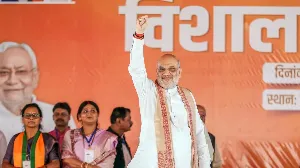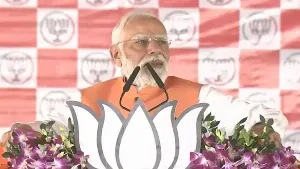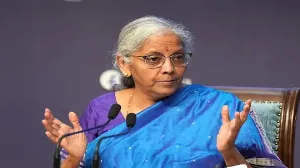New US Visa Guidelines Impact Applicants with Health Conditions

The United States government has introduced new guidelines that could significantly affect foreign nationals with certain health conditions seeking visas or permanent residency. Under the latest directive from the administration of President Donald Trump, applicants suffering from diseases such as diabetes, obesity, and various cardiovascular issues may find their applications denied.
According to a report by KFF Health News, the State Department communicated these guidelines to US embassies worldwide, emphasising that these measures primarily target individuals applying for permanent residency in the US. Legal experts believe the directive could lead to increased scrutiny of applicants' health conditions by visa officers.
Health Conditions Under Review
The cable sent to US embassies instructs visa officers to closely examine applicants for medical conditions that may incur substantial healthcare costs. The report specifies a range of health issues, including but not limited to cardiovascular diseases, cancers, diabetes, neurological disorders, and mental health issues. The guidelines suggest that individuals with such ailments could be classified as a potential 'public charge,' indicating they might require extensive medical care that could become a financial burden on US resources.
Charles Wheeler, a senior attorney with the Catholic Legal Immigration Network, noted that while all visa applicants are subject to these new measures, they will likely be applied most rigorously to those seeking permanent residency.
Additional Health Considerations
In addition to individual health assessments, the guidelines also require visa officers to evaluate the health of applicants' family members, including children and elderly dependants. The State Department's cable poses critical questions about whether dependants have disabilities or chronic conditions that could hinder the applicant's ability to maintain employment.
"Do any of the dependents have disabilities, chronic medical conditions, or other special needs and require care such that the applicant cannot maintain employment?" the guidelines state.
The comprehensive medical examination that immigrants must undergo includes screenings for communicable diseases, mental health evaluations, and required vaccinations. However, this new directive expands the scope of examination to chronic illnesses, further complicating the immigration process for many.
Concerns Over Implementation
Legal experts have raised alarms regarding the implications of these guidelines. Sophia Genovese, an immigration lawyer at Georgetown University, explained that the language of the directive encourages visa officers and examining physicians to speculate on the future medical costs of applicants based on their health histories.
Wheeler highlighted the potential issues with this approach, stating, "That's troubling because they’re not medically trained, they have no experience in this area, and they shouldn't be making projections based on their own personal knowledge or bias." This sentiment reflects broader concerns that immigration officials may overreach their expertise in making health-related determinations.
Financial Independence Assessment
Another critical aspect of the new guidelines is the requirement for visa officers to assess whether applicants have sufficient financial resources to manage their healthcare costs independently. The guidelines question if applicants can cover their medical expenses without relying on government assistance.
"Does the applicant have adequate financial resources to cover the costs of such care over his entire expected lifespan without seeking public cash assistance or long-term institutionalisation at government expense?" reads the directive. This additional layer of scrutiny for financial independence could further complicate the visa application process for many individuals and families.
Impact on Immigration Policy
The recent changes are part of a broader trend under the Trump administration, which has implemented several executive orders aimed at tightening immigration policies. Previous measures have included increased fees for H-1B visas and stricter requirements for Green Card holders seeking US citizenship.
These new visa guidelines have sparked concern, particularly among immigrant communities and legal advocates, who worry about the potential repercussions for those with chronic health conditions. As the US government continues to refine its immigration policies, the focus on health-related criteria promises to reshape the landscape for many seeking to enter or reside in the country.

Amit Shah Warns Bihar Voters Against Opposition in Election Rally

Prime Minister Modi Criticises Bihar Opposition at Aurangabad Rally

China's Fujian Aircraft Carrier Enters Service Amid Naval Expansion

Brazilian Model Reacts to Photo Used in Indian Political Controversy





